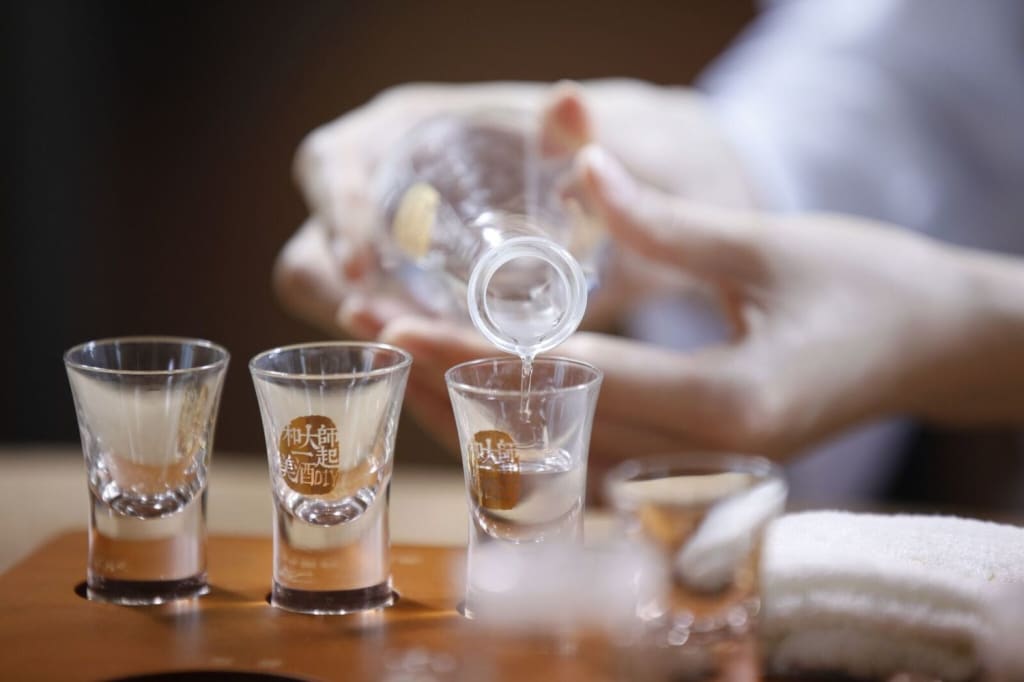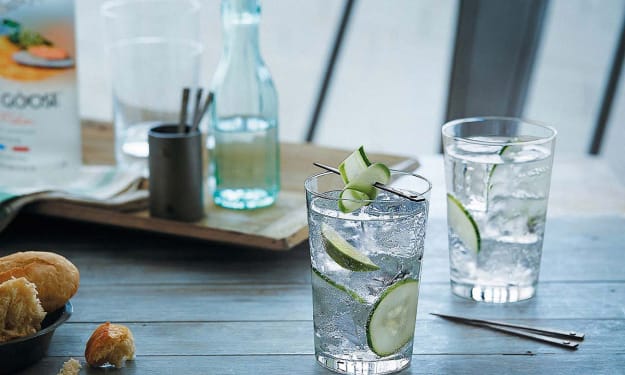What Is Baijiu?
It's an understandable question to ask: "What is baijiu?" Although it's one of the four most popular liquors in the world, this Chinese liquor doesn't show up in the US too often.

Many Americans have heard of the Japanese drink sake (though there will be things you probably didn't know about sake as well), but more likely than not, they'll ask the question: “What is baijiu?” The Chinese national drink is not well-known in the United States. In China, however, people drink baijiu frequently—the same way we drink beer, wine, and liquor. There are many facts about baijiu that Americans would not know unless they took the time to learn them, so becoming knowledgeable on baijiu, the many aspects of its production, aroma types, and aroma categories, as well as its fermentation and distilling processes can be especially helpful. It's always good to know more about other cultures and their social habits, whether you ever plan to travel to China one day or not.
The first thing to know when asking the question the three-word question is that there are a few different classifications of baijiu. Baijiu is classified by its aroma, and there are four main categories. These main categories are strong aroma, sauce aroma, rice aroma, and light aroma. In China, however, there are a variety of other more complex categories that aren’t as common and only baijiu connoisseurs would know. This is similar to how wine tastings in the United States may be.
You may ask, “What is baijiu?” Well, with this knowledge also comes great responsibility. Most will advise to drink baijiu responsibly. This is because baijiu can be very strong. With the many different aroma categories and sauce fragrances, it will be hard to know how strong your baijiu might be. When drinking baijiu, be aware that you could be drinking less liquid, but quite a bit of volume in alcohol.
Depending on the type of baijiu you get, baijiu can get quite expensive, and the same can be said for our categories of liquor in the United States. The vodkas and whiskeys that have more complex distilling processes are going to be more expensive. Baijiu is no different. Baijiu is produced in a particular way, but of course, the higher quality baijiu will take more time to produce and it will have the bigger price tag to prove it.
Speaking of the way baijiu is produced, one of the things that many people also question when is how it is made. Baijiu is distilled from sorghum that is fermented underground. Sorghum is a type of grain, and these raw materials are heated during the distilling process until the liquid turns to steam. The steam is then collected, and this is what will eventually become the clear liquid known as baijiu. Other grains such as rice can be used as alternatives to sorghum in the production process as well.
The culture of baijiu is huge in China and if you don’t understand it then you will never be fully able to answer the question: “What is baijiu?” Baijiu is one of the four most popular liquors in the world, next to cognac, whiskey, and vodka. Most people in China drink baijiu on its own at room temperature, however, there are also baijiu cocktails in which it is infused with a fruity taste.
The taste of baijiu goes along with the categories based on fragrance aroma. Similar to wine, you’ll want to have a balance of flavors in your mouth when you drink baijiu, but you’ll also be looking at the smoothness of the liquor and its strength. A good baijiu is produced with all qualities taken into account, that way the drinker has a full experience when they drink it, as opposed to just an ordinary night out.
As mentioned before in the taste being a full experience, the aroma plays an essential role in answering, “What is baijiu?” From mild aroma baijiu, also called fen aroma, to rice aroma baijiu, to complex and strong aromas—the selection truly is endless. These aromas decide how drunk you'll get, how your drink tastes, how you'll feel when drinking it, the smoothness, the aftertaste, and much much more.
Along with the overall aroma categories of baijiu, there are also regional variations and many popular brands throughout China to pay attention to. In one region of the country, when you ask, “What is Baijiu?” they may point you to something completely different than they might in another. Some of the regional variations include Fenjiu, which is from Fenyang, or Dagujiu, which is from Sichuan, or Sanhuajiu, which is made in Guilin.
The drinking etiquette associated with baijiu dates back many years. China is all about history and tradition, so sticking to this etiquette is key if you ever go to China and drink baijiu at a dinner or social gathering.
- You should always fill your neighbors glass and fill it to the brim.
- Always toast before drinking.
- If someone honors you with a toast, make sure you return that toast out of courtesy and respect.
- When you cheers with someone (clink glasses), keep your glass below theirs. This is a sign of respect—and it may be a race between the two of you to be the one underneath the other.
- And always drink your entire shot of baijiu!
Drinking rituals from around the world will always vary. Learn them. Remember them. Practice them, or else you will offend them.
Baijiu is not widely known in the United States, but many makers of baijiu are hoping to expand the presence of it over time. Hopefully, as it grows, Americans will no longer have to ask the question, “What is baijiu?” It will be more and more prevalent in the States—the same way it is in China. Chinese people seem to enjoy this liquor very much, and everyone knows people like to drink all around the globe. It would surely be just as popular if it expanded to other countries. While only time will tell of baiju's future, if you ever see it in stores, at least you’ll now be able to point it out, knowing way more than your friends about this unique drink’s history, production, and flavor. Though—might I add—that the history of vodka may also be quite fascinating to most.
About the Creator
Morgan E. Westling
Avid Reader, Freelance Writer/Editor, and Lifestyle Blogger
Enjoyed the story? Support the Creator.
Subscribe for free to receive all their stories in your feed. You could also pledge your support or give them a one-off tip, letting them know you appreciate their work.






Comments
There are no comments for this story
Be the first to respond and start the conversation.